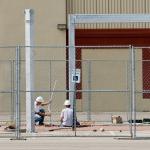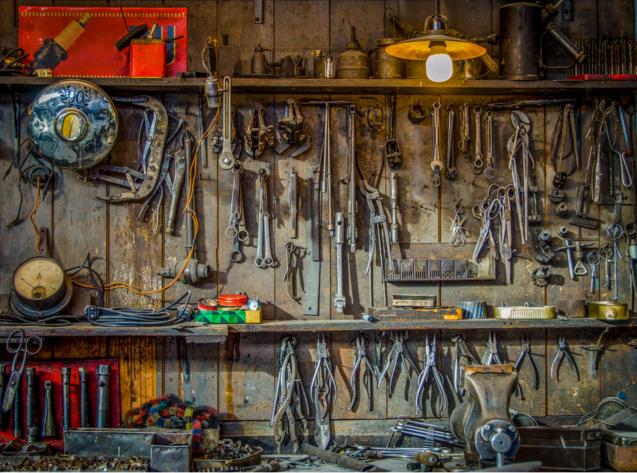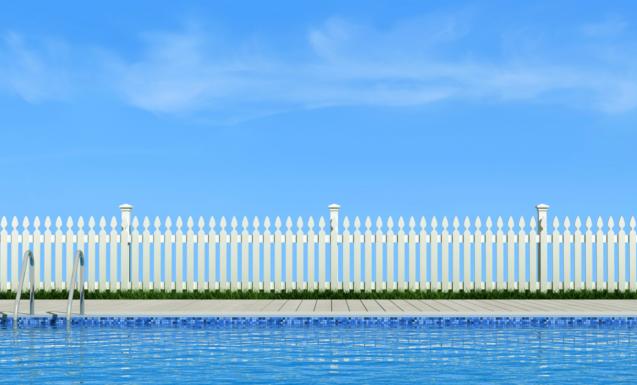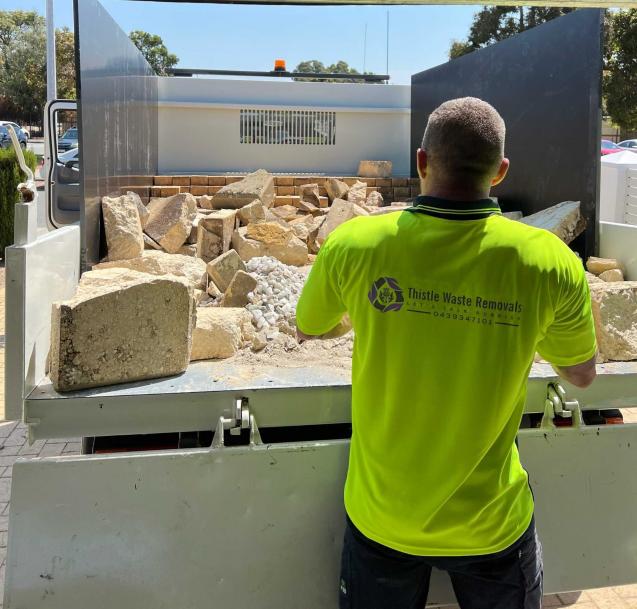
Building Equipment that's better to Buy than Hire
Are you setting up for a new project? Or have room in your budget to purchase some equipment assets? Depending on what you’re after, deciding to buy or hire can sometimes be a difficult decision.
This is a particularly hard decision in an industry that in 2015 saw a decline, even though it is expected to increase overall in 2016/17. In an uncertain environment, organisations often won’t invest in equipment and see hiring as the best option short term. However, this may not necessarily be the case, a lot of hired equipment can pay for itself between 6-12 months.
This article addresses some considerations when it comes to buying rather than hiring equipment for your construction site. It explains some equipment assets are cheaper to hire rather than buy. We also discuss yellow equipment financing options that will help your business pay back your valuable assets using cash flow.
Project managers should look at when the time is right to purchase rather than rent, and feasibility should be conducted on a project by project basis. Other factors that may influence your decision are profitability, tax situations and obvious considerations like capital investment, length of time you expect to use equipment or whether it can be used over multiple projects. These are all cost-based however Project Managers should be making the decision not only on casts and profits but also based on risk, efficiencies or inefficiencies and whether equipment needed is for immediate use.
Often hiring equipment isn’t an effective option when reviewing it with all these cost factors in mind. You should always look to the future and the impact owning equipment will have on your business strategically. If a contractor owns a lot of their own equipment then they have a great competitive advantage over other companies when estimating work or achieving profit margins in projects.
Generators
Equipment like a generator may often be seen as more cost-effective to rent because of their infrequent use. However, even though they aren’t used frequently they’re needed instantly in an emergency. Whilst hire companies can be very expensive with additional fees, fuel charges etc., buying or hiring a generator should not be decided based on purely a cost comparison. You should consider the potential for other costs such as downtime, or OH&S risks in the event of an emergency. A generator purchased could often pay for itself in just one or two power outages, it minimises risk and downtime. Lowering risk on some sites may often outweigh the additional costs initially.
Equipment or machinery
Purchasing ideally would be the best option for equipment that’s used daily onsite, however, the majority of the time it might not be affordable.
If forklifts are used daily for loading and unloading trucks and moving equipment, then purchasing can be much more cost-effective, particularly if it is a long or ongoing project. If tradespeople are using elevated work platforms or man lifts for high access work, often these are better purchased rather than hired.
Similarly, machinery such as industrial air compressors which are in frequent use and required regularly should be purchased rather than hiring. Resale value, if maintained on these pieces of equipment can often be decent however don’t base your purchase decision solely on resale value. You should always compare your rental costs to your purchase costs over the useful life of equipment. The benefit of owning these rather than hiring them is they are available when you want or need them, no length paperwork additional insurance waivers or elevated charges for damage.
Temporary Fencing & Crowd Control Barriers
A great example of inexpensive equipment that’s often more cost-effective to buy, rather than hire is temporary fencing and crowd control barriers. This is particularly beneficial if you are using the fencing for long periods of time on large construction sites or for multiple projects. Most temporary fencing will stand the test of time and can last for multiple years in harsh conditions.
Unlike hiring, buying your own temporary fencing means you don’t have to pay the additional fees often associated with hiring. These additional costs can include damage & cleaning fees, hire contract extensions, transport, set up and dismantling fees, you often end up paying a lot more than you initially expected.
When you hire, damages to temporary fencing can be penalised 300-400% of the actual cost. For example if a temp fence panel’s
cost is around $50 to purchase, a fencing hire company could charge you $200 to replace just one damaged panel. With buying can just purchase small amounts as low as one panel to replace any damages as and when they occur in one transaction. No consequences for misuse, costs for extension of the loan period or annoying paperwork.
As OH&S is central on most sites that require temporary fencing, compliance is a must. You need to adapt and often site areas secured by fencing are subject to change. Owning fencing means you don’t have to worry about pick up or delivery to relocate your temporary fencing on-site as the need arises – no hire company to contact, no waiting, and no installation fees.
Move around your site or to another site whenever or wherever it’s needed and no need to extend hire periods or pay for ongoing use. All you need is hand tools to relocate to a different part of your site, you are in control.
When it comes to deciding whether to buy or hire, there are many variables to consider - even the purpose of your property itself is a key factor. If you're operating a business from your property, then purchasing certain equipment may be beneficial for future use. On the other hand, more often than not, hire options are more suitable for owners who are renting out their commercial property for investment purposes.
No matter what your situation is, careful planning and due diligence is crucial.
This is a particularly hard decision in an industry that in 2015 saw a decline, even though it is expected to increase overall in 2016/17. In an uncertain environment, organisations often won’t invest in equipment and see hiring as the best option short term. However, this may not necessarily be the case, a lot of hired equipment can pay for itself between 6-12 months.
This article addresses some considerations when it comes to buying rather than hiring equipment for your construction site. It explains some equipment assets are cheaper to hire rather than buy. We also discuss yellow equipment financing options that will help your business pay back your valuable assets using cash flow.
Project managers should look at when the time is right to purchase rather than rent, and feasibility should be conducted on a project by project basis. Other factors that may influence your decision are profitability, tax situations and obvious considerations like capital investment, length of time you expect to use equipment or whether it can be used over multiple projects. These are all cost-based however Project Managers should be making the decision not only on casts and profits but also based on risk, efficiencies or inefficiencies and whether equipment needed is for immediate use.
Often hiring equipment isn’t an effective option when reviewing it with all these cost factors in mind. You should always look to the future and the impact owning equipment will have on your business strategically. If a contractor owns a lot of their own equipment then they have a great competitive advantage over other companies when estimating work or achieving profit margins in projects.
Generators
Equipment like a generator may often be seen as more cost-effective to rent because of their infrequent use. However, even though they aren’t used frequently they’re needed instantly in an emergency. Whilst hire companies can be very expensive with additional fees, fuel charges etc., buying or hiring a generator should not be decided based on purely a cost comparison. You should consider the potential for other costs such as downtime, or OH&S risks in the event of an emergency. A generator purchased could often pay for itself in just one or two power outages, it minimises risk and downtime. Lowering risk on some sites may often outweigh the additional costs initially.
Equipment or machinery
Purchasing ideally would be the best option for equipment that’s used daily onsite, however, the majority of the time it might not be affordable.
If forklifts are used daily for loading and unloading trucks and moving equipment, then purchasing can be much more cost-effective, particularly if it is a long or ongoing project. If tradespeople are using elevated work platforms or man lifts for high access work, often these are better purchased rather than hired.
Similarly, machinery such as industrial air compressors which are in frequent use and required regularly should be purchased rather than hiring. Resale value, if maintained on these pieces of equipment can often be decent however don’t base your purchase decision solely on resale value. You should always compare your rental costs to your purchase costs over the useful life of equipment. The benefit of owning these rather than hiring them is they are available when you want or need them, no length paperwork additional insurance waivers or elevated charges for damage.
Temporary Fencing & Crowd Control Barriers
A great example of inexpensive equipment that’s often more cost-effective to buy, rather than hire is temporary fencing and crowd control barriers. This is particularly beneficial if you are using the fencing for long periods of time on large construction sites or for multiple projects. Most temporary fencing will stand the test of time and can last for multiple years in harsh conditions.
Unlike hiring, buying your own temporary fencing means you don’t have to pay the additional fees often associated with hiring. These additional costs can include damage & cleaning fees, hire contract extensions, transport, set up and dismantling fees, you often end up paying a lot more than you initially expected.
When you hire, damages to temporary fencing can be penalised 300-400% of the actual cost. For example if a temp fence panel’s
cost is around $50 to purchase, a fencing hire company could charge you $200 to replace just one damaged panel. With buying can just purchase small amounts as low as one panel to replace any damages as and when they occur in one transaction. No consequences for misuse, costs for extension of the loan period or annoying paperwork.
As OH&S is central on most sites that require temporary fencing, compliance is a must. You need to adapt and often site areas secured by fencing are subject to change. Owning fencing means you don’t have to worry about pick up or delivery to relocate your temporary fencing on-site as the need arises – no hire company to contact, no waiting, and no installation fees.
Move around your site or to another site whenever or wherever it’s needed and no need to extend hire periods or pay for ongoing use. All you need is hand tools to relocate to a different part of your site, you are in control.
When it comes to deciding whether to buy or hire, there are many variables to consider - even the purpose of your property itself is a key factor. If you're operating a business from your property, then purchasing certain equipment may be beneficial for future use. On the other hand, more often than not, hire options are more suitable for owners who are renting out their commercial property for investment purposes.
No matter what your situation is, careful planning and due diligence is crucial.



